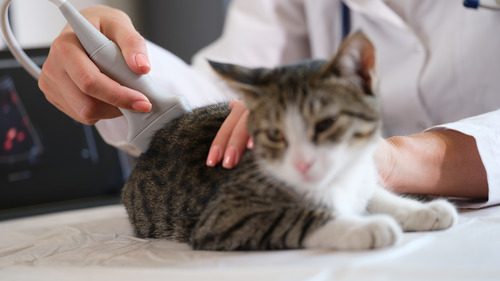What Does a Veterinary Internist Do?
When your pet faces a complex health issue, understanding the roles of different veterinary specialists becomes essential. A veterinary internist is one of these key figures, providing advanced care for pets with internal medical conditions. At Veterinary Healthcare Associates in Winter Haven, FL, we’re dedicated to ensuring your pets receive the best possible care. This blog aims to shed light on the specialized field of veterinary internal medicine, explaining what a veterinary internist does and how they can be a crucial part of your pet’s health team.

Understanding Veterinary Internal Medicine
The Role of a Veterinary Internist
A veterinary internist specializes in diagnosing and treating complex diseases affecting the internal organs of pets. This includes conditions related to the gastrointestinal system, liver, kidneys, endocrine system, and more. They use advanced diagnostic tools like ultrasound, endoscopy, and specialized blood tests to get a detailed picture of your pet’s health issues.
Why Your Pet Might Need an Internist
Pets, like people, can develop intricate health conditions that require more than general care. If your pet shows signs of any of the following:
- Chronic illness
- Unexplained weight loss
- Persistent vomiting or diarrhea
- Other symptoms that don’t resolve with standard treatments
A veterinary internist may be needed to dive deeper into their condition.
Diagnostic Tools and Techniques
Advanced Imaging
Veterinary internists often rely on advanced imaging techniques, such as MRI and CT scans, to get a clear view of what’s happening inside your pet’s body. These tools help in accurately diagnosing diseases that are not easily detected through standard examinations.
Laboratory Tests
From blood work to urinalysis, internists use a variety of laboratory tests to understand your pet’s internal health. These tests can reveal issues like hormonal imbalances, infections, and organ dysfunction, providing vital clues to the best treatment options.
Common Conditions Treated
- Gastrointestinal Disorders: Internists are experts in treating complex gastrointestinal issues, such as inflammatory bowel disease (IBD) and pancreatitis. They can offer specialized diets, medications, and, if necessary, surgical interventions to manage these conditions.
- Endocrine Diseases: Diseases like diabetes, hyperthyroidism, and Addison’s disease fall under the purview of a veterinary internist. Managing these conditions often requires a detailed treatment plan, including medication, diet adjustments, and regular monitoring.
The Importance of Referrals
Your primary care vet may recommend a referral to a veterinary internist if your pet’s condition is beyond their expertise or if your pet is not responding to treatment as expected. This referral is a step towards getting your pet the specialized care they need.
Why Specialized Veterinary Care Matters
A veterinary internist plays a critical role in the health and well-being of pets with complex medical conditions. At Veterinary Healthcare Associates in Winter Haven, FL, we understand the importance of specialized care and are here to support your pet through their health challenges. For more information about the veterinary internist role, email MyDreamJob@vhavets.com. Our team is ready to provide the advanced care your pet deserves.

About VHA
At VHA, we believe in the unlimited potential that lives in you--and in all of us. With the veterinary industry becoming more corporate, we’re determined to bend the arc of veterinary medicine and bring it back to what it’s meant to be; a universal experience that strengthens the bonds between animals and people and makes them happy, healthy, and healed.
